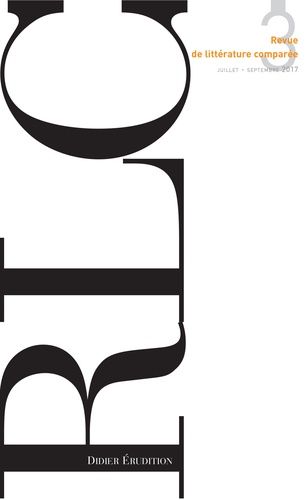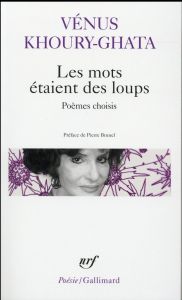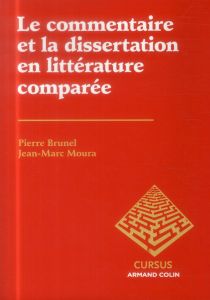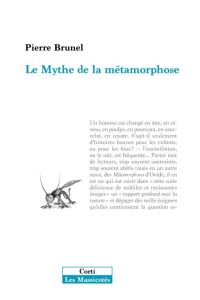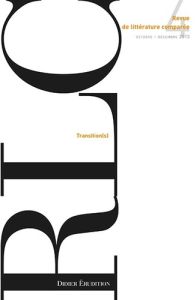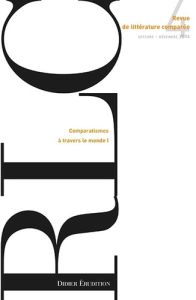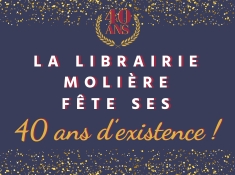Revue de littérature comparée N° 363, 3/2017
Résumés Antoni MARTÍ MONTEVERDE, Edgar Quinet, Joseph Texte et les origines de la Littérature Comparée à Lyon, RLC XCI, n° 3, juillet-septembre 2017, p. 291-306. Cet article veut saluer la mémoire d'un précurseur de la Littérature Comparée, Edgar Quinet, et son Cours de Littérature Etrangère professé à Lyon l'année 1839. Il faut souligner aussi que Joseph Texte a consacré à ce Cours la Leçon Inaugurale de sa carrière de Professeur de Littératures Modernes Comparées, à l'Université de Lyon, l'année 1897. Charlotte KRAUSS, Déterrer les traces du XXe siècle. Histoire et biologie dans le roman des pays postcommunistes, RLC XCI, n° 3, juillet-septembre 2017, p. 307-320. L'article part du constat que de nombreux récits récemment publiés dans les pays post-communistes en Europe de l'Est esquissent des espaces naturels laissant progressivement apparaître les traces de l'histoire violente du XXe siècle. Il s'intéresse à deux exemples, allemand et polonais, dans lesquels les liens entre biologie et histoire sont particulièrement accentués. Les protagonistes de L'Inconstance de l'espèce de Judith Schalansky (2011) et de Sur les Ossements des morts d'Olga Tokarczuk (2009) défendent un monde régi uniquement par des lois biologiques - darwiniennes ou plus ésotériques. Mais cette vision stricte est mise à mal par la façon d'agir inhumaine des protagonistes ainsi que par des informations sur leur passé sous le communisme. Des récits apparemment anodins s'avèrent ainsi être nourris par l'histoire et éminemment politiques. Andrei MINZETANU, Le sens du détail ou le tact critique, RLC XCI, n° 3, juillet- septembre 2017, p. 321-336. Cet article pose la question du statut du "détail" dans le cadre des théories de la lecture. Dans un premier temps, par un détour historique et critique, j'essaie de comprendre à travers quelques figures clés une "épistémologie du détail" ; dans un second temps, j'analyse, essentiellement à partir du travail de Jean-Claude Milner une "éthique du détail" qui a trait au "discernement politique" nécessaire dans ce que le philosophe appelle une "culture phrasée" ; et enfin je propose une réflexion sur le "sens du détail" , en réponse à un très bel article de Michel Charles, dans le contexte épistémologique plus particulier des théories de la lecture. Abstracts Juan Antonio GARRIDO ARDILA, The picaresque and the rise of the English novel : Bunyan's Mr Badman, RLC XCI, no. 3, July. -Sept 2017, p. 259-272. This article analyses the extent to which Bunyan's Mr Badman conforms to the parameters of the picaresque genre. Although written in the form of a dialogue and although the protagonist is not, in the strictest sense, a picaro, Bunyan endowed his novel with two essentially picaresque characteristics-the story is told to explain how the protagonist reached a particular situation ; and the text is written by a member of a social minority with a satirical purpose. This article concludes that, when writing Mr Badman under several influences, Bunyan replicated the picaresque in order to criticise the society in which he, as a dissenter, was a social outsider, like Mateo Alemán and the author of Lazarillo had before. The final-situation structure and the roguish protagonist allowed Bunyan to criticise the 'badness' of the Restoration that followed the Puritan Republic. The application of the picaresque structure and picaresque satire alike was instrumental in anticipating the rise of the novel, as Defoe would use both these picaresque features just 40 years afterwards. Carla KILLANDER CARIBONI, Comparison in Jacob Jonas Björnståhl's travel letters (in French), RLC XCI, no. 3, July. -Sept 2017, p. 273-290. This article presents the Swedish orientalist Björnståhl and the circumstances of the Grand Tour that brought him to France, where he stayed, mostly in Paris 1767-1770. Twelve of the eighty-three letters published in the book Resa (1780-84) were sent from France. Björnståhl, who was educated in comparative linguistics, exports the comparative method and applies it to cultural phenomena. This article focuses on the comparisons where one of the compared terms is an aspect of the French or Parisian society and culture. Through the comparisons Björnståhl orders his travel experiences but he also expresses judgments and takes critical stances. They offer therefore a vivid image both of the traveller and of the eighteenth century France he observes. Antoni MARTÍ MONTEVERDE, Edgard Quinet, Joseph Texte and the origins of Comparative Literature in Lyon (in French), RLC XCI, no. 3, July. -Sept 2017, p. 291-306. In this paper we will remember Edgar Quinet as former professor in Comparative Literature, as he devoted a Cours on Foreign Literatures at Lyon, in 1839. We must also have in mind that Joseph Texte gave a lecture on Quinet as First Lesson of his University Chair in Comparative Literature, (Université de Lyon, 1897) Charlotte KRAUSS, Exhuming the traces of the 20th century. History and biology in the novel of post-communist countries (in French), RLC XCI, no. 3, July. -Sept 2017, p. 307-320. The article starts from the observation that many narratives recently published in post-communist countries of Eastern Europe sketch out natural spaces that gradually reveal traces of the violent history of the 20th century. The article focuses on two examples, a German and a Polish one, which particularly emphasize the links between biology and history. The protagonists of Der Hals der Giraffe (The Giraffe's Neck, 2011) by Judith Schalansky and of Prowadz swój plug przez kosci umarlych (Drive Your Plow over the Bones of the Dead, 2009) by Olga Tokarczuk defend a world governed by biological laws, Darwinian or more esoteric laws. But this strict vision is undermined by the inhuman behavior of the protagonists as well as by informations on their past under communism. Apparently inconsequential novels are thus inspired by history and turn out to be eminently political. Andrei MINZETANU, The attention to detail, or tactful reading (in French), RLC XCI, no. 3, July. -Sept 2017, p. 321-336. This article questions the notion of "detail" in contemporary reading theories. Making a historical and critical detour, I first try to understand, with the help of a few major figures in this domain, what constitutes the "epistemology of details". Then, elaborating on Jean-Claude Milner's work, I try to analyse the "ethics of details" which relates to "political discernement", a fundamental element of what Milner calls the "culture of sentences". Finally I suggest a development on the "attention to details", as an answer to an article by Michel Charles, within the particular epistemological context of reading theories.
25,00 €
Disponible sur commande
EAN
9782252040669
Caractéristiques
| EAN | 9782252040669 |
|---|---|
| Titre | Revue de littérature comparée N° 363, 3/2017 |
| Auteur | Brunel Pierre |
| Editeur | KLINCKSIECK |
| Largeur | 150mm |
| Poids | 195gr |
| Date de parution | 02/12/2017 |
| Nombre de pages | 128 |
| Emprunter ce livre | Vente uniquement |


